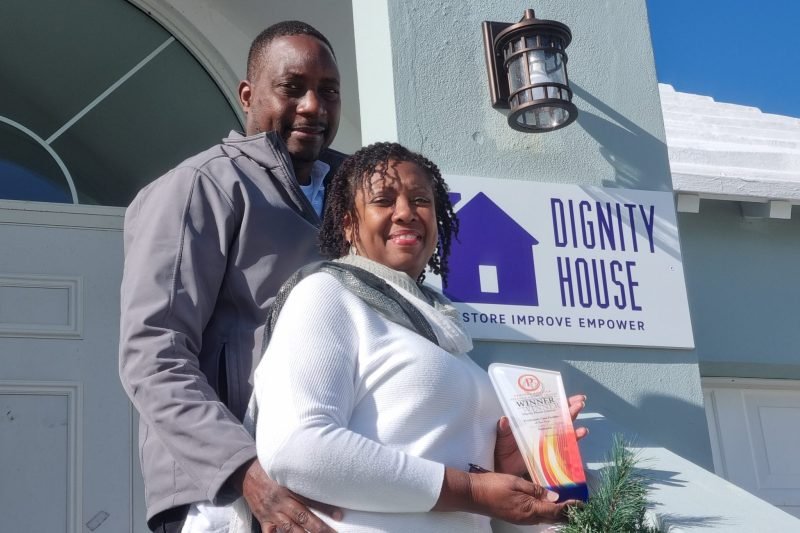Achivments

THE POWER OF DIALECTICAL BEHAVIOURAL THERAPY
Dignity House and its results-delivering step-down approach
For those battling with their mental health – whether negative thoughts and emotions alongside their subsequent behaviours are something they have faced continuously in their lives or are something new they have been dealing with – the idea that one can come to both accept and effectively change their cause and effect can seem contradictory. Here to prove otherwise is Dialectical Behaviour Therapy (DBT) – a form of talking therapy that is rooted in Cognitive Behavioural Therapy (CBT) and especially suited to those who feel emotions very intensely.
While incorporating CBT’s focus on changing unhelpful ways of thinking and thus behaving, DBT goes further to allow individuals to truly accept who they are at their core. As identified by mental health charity. Mind, DBT aims to help you “understand and accept your difficult feelings, learn skills to manage them, and become able to make positive changes in your life”. In working to develop healthy ways to cope and regulate emotions, DBS ultimately teaches individuals
how to live in the moment, focusing primarily on the present and future rather than the past. There is a true commitment to bettering oneself with DBT, and as such, DBT therapists are known to expect more from their patients, encouraging them to really work hard for long-term results.Having initially been developed to treat borderline personality disorder (BPD), DBT has been adapted and subsequently expanded to tackle a wide range of other mental health conditions. Alongside aiding children, adolescents and adults who have difficulty regulating their emotions or exhibit self-destructive behaviours like substance abuse, eating disorders, and self-harming, DBT is sometimes used to treat post-traumatic stress disorder (PTSD). Group sessions are a common element of this evidence-based psychotherapy approach, but rather than functioning like traditional group therapy, such sessions are more like a series of teaching lessons- with each identifying skills that can be applied in day-to-day life.
Central America & Caribbean Prestige Awards | General
Typically there are four skills modules, spanning mindfulness, distress tolerance, interpersonal effectiveness, and emotion regulation. The mindfulness module often runs between the others, reminding individuals to focus their attention on the present rather than worrying about the past and regularly include exercises that can be practised outside of sessions. The distress tolerance module sees patients learn how to effectively deal with crises without turning to harmful behaviours, while the interpersonal effectiveness sessions teach participants to ask for things and say no to others, all while upholding respect for themselves and those around them. Lastly, the emotion regulation module is rooted in skill work that aids patients in becoming more aware of their emotions so that they can best understand and control them. Moreover, these group classes often incorporate role-playing with others, and individuals are given homework each. week to help them truly put the tactics and skills they have become familiar with to use.
Incorporating the core acceptance and change. teachings and techniques that see DBT enabling individuals to make sense of their feelings and behaviours while successfully replacing them with helpful and healthy alternatives is leading mental health rehabilitation facility Dignity House. Dedicated to reaching, restoring and improving lives, Dignity House and its highly knowledgeable
and professional team deliver services focused on the long term. Its effective and unique step-down. approach provides each client with the opportunity to concretely see and showcase their growth, with patient plans beginning with residential care and moving on to supported living before ending with independent living with minimum support.
It is this incredible approach that enables Dignity House’s clients to build their life-changing coping skills in a supportive environment before putting. them to use independently in their daily lives. While care plans are always curated according to individual needs and goals, Dignity House essentially operates on three programme options – ranging from a longer six-month to a more concise three-month and an intensive eight-week schedule. No matter the option that is chosen, clients are provided with the space and time to check in with their feelings and reflect on the new approaches they have learned, alongside attending regular psychological assessments, community meetings, and one-to-one therapy sessions. Furthermore, clients have the chance to engage in a wide range of activities that help them build practical skills and develop the ability to mix socially, all while providing a sense of purpose and achievement. Such activities span swimming and gardening, with plans also including. individual recreational time with the assistance of an aide.
Housing nine residents at a time, Dignity House continues to support its clients upon completion of their programme through supportive living. Enabling those who exhibit a level of mastery over the DBT techniques they have been taught to increase their independence, Dignity House’s supportive living offering sees a client share a home with one or two others. Each client is assigned a Mental Health Support Worker to aid with the transition and help manage daily activities. Alongside continued DBT sessions, clients have the opportunity to regain control over their lives, taking responsibility for purchasing groceries, doing laundry and booking personal appointments.
Signalling tremendous progress, the final stage in Dignity House’s step-down care process consists of independent living. With clients fully equipped with comprehensive DBT knowledge and actively applying its principles daily, little supervision is necessary. At this point, clients are sure to show real confidence in taking on the world on their own, with Dignity House’s team checking in as and when necessary. Once entirely discharged, such clients are still expected to make their own appointments to see a psychiatrist or psychologist of their own choice, with the option to continue to receive support from the team if desired.




